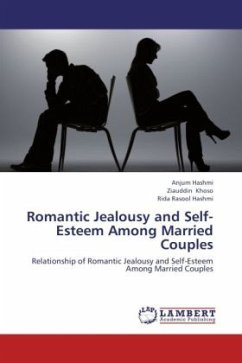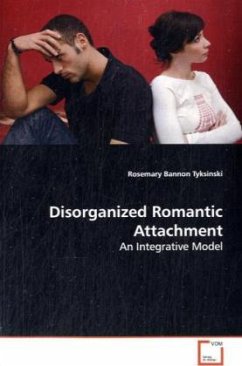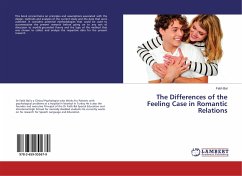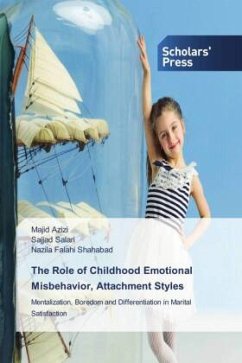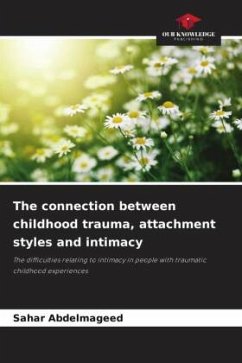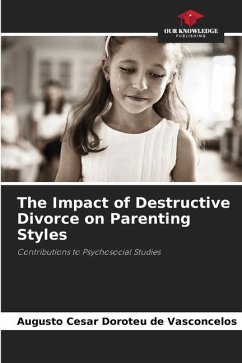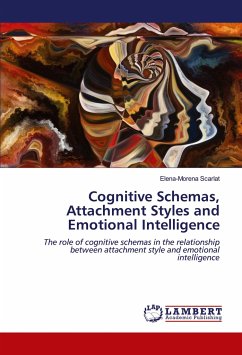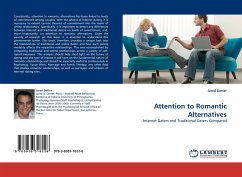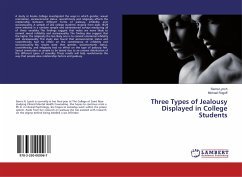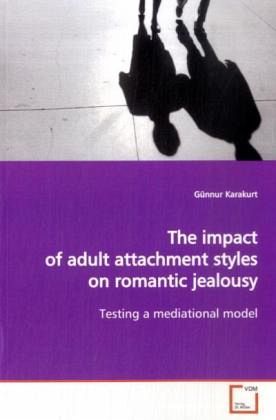
The impact of adult attachment styles on romantic jealousy
Testing a mediational model
Versandkostenfrei!
Versandfertig in 6-10 Tagen
32,99 €
inkl. MwSt.

PAYBACK Punkte
16 °P sammeln!
Jealousy is an emotional complex that emerges at anearly age as a natural human reaction. Studies on theantecedents of jealousy suggest that certainpersonality characteristics, mainly low self-esteemand feelings of inadequacy, are strongly associatedwith jealousy. In addition to individualcharacteristics, the characteristics of therelationship, including dependency andinterdependency, affect jealousy. These determinantsof jealousy are also functions of attachment andaffect regulation processes. Consequently,individuals with different attachment patterns areexpected to display specific reaction...
Jealousy is an emotional complex that emerges at an
early age as a natural human reaction. Studies on the
antecedents of jealousy suggest that certain
personality characteristics, mainly low self-esteem
and feelings of inadequacy, are strongly associated
with jealousy. In addition to individual
characteristics, the characteristics of the
relationship, including dependency and
interdependency, affect jealousy. These determinants
of jealousy are also functions of attachment and
affect regulation processes. Consequently,
individuals with different attachment patterns are
expected to display specific reactions to
jealousy-evoking situations that are consistent with
their attachment styles. This book investigates the
relationship between mental models of attachment and
jealousy through a mediational model. Findings
indicate that a more positive model of self
and others is related to a lower level of inadequacy
that in turn contributes to a lower level of
jealousy.
early age as a natural human reaction. Studies on the
antecedents of jealousy suggest that certain
personality characteristics, mainly low self-esteem
and feelings of inadequacy, are strongly associated
with jealousy. In addition to individual
characteristics, the characteristics of the
relationship, including dependency and
interdependency, affect jealousy. These determinants
of jealousy are also functions of attachment and
affect regulation processes. Consequently,
individuals with different attachment patterns are
expected to display specific reactions to
jealousy-evoking situations that are consistent with
their attachment styles. This book investigates the
relationship between mental models of attachment and
jealousy through a mediational model. Findings
indicate that a more positive model of self
and others is related to a lower level of inadequacy
that in turn contributes to a lower level of
jealousy.



